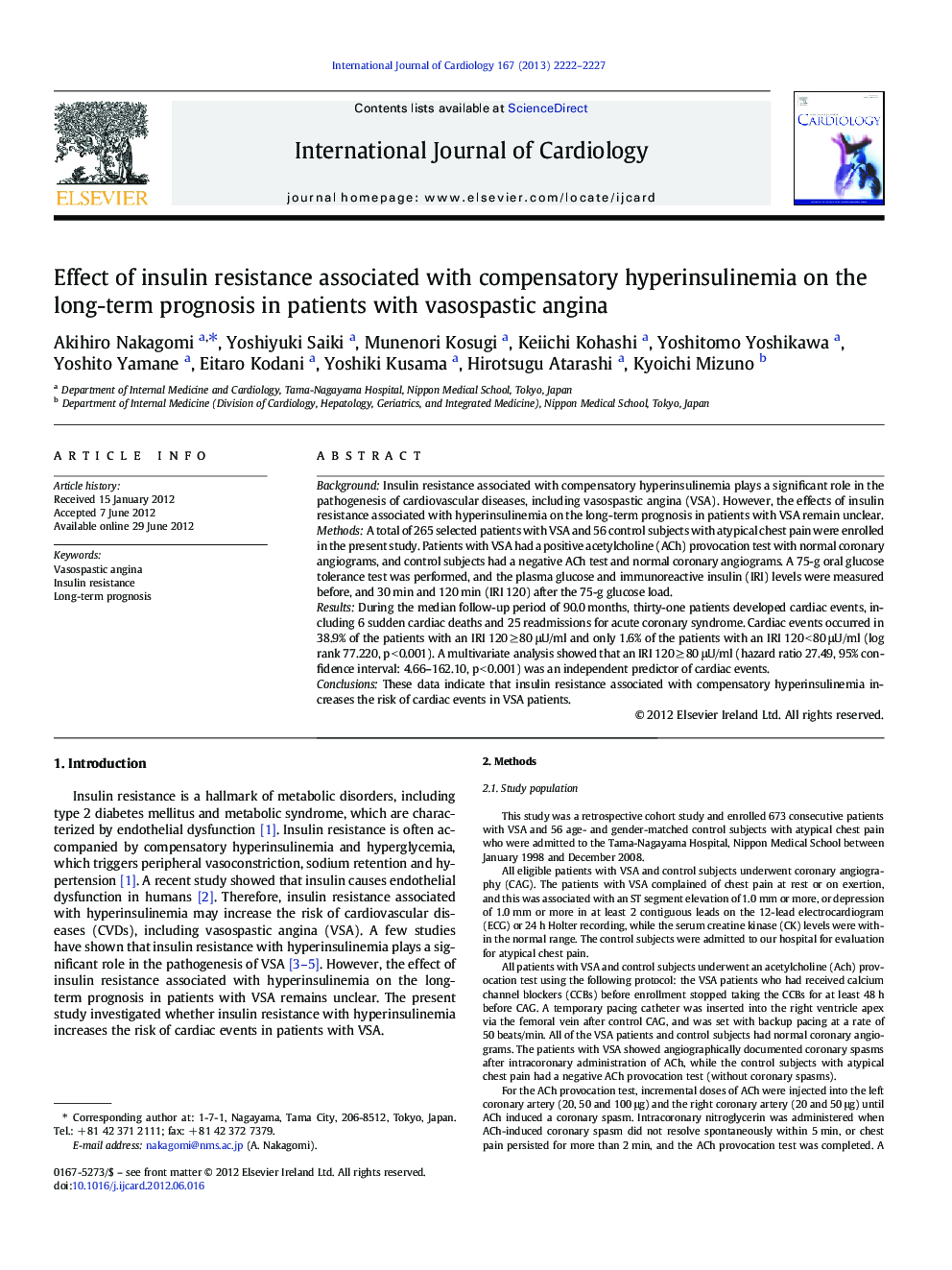| Article ID | Journal | Published Year | Pages | File Type |
|---|---|---|---|---|
| 5977302 | International Journal of Cardiology | 2013 | 6 Pages |
BackgroundInsulin resistance associated with compensatory hyperinsulinemia plays a significant role in the pathogenesis of cardiovascular diseases, including vasospastic angina (VSA). However, the effects of insulin resistance associated with hyperinsulinemia on the long-term prognosis in patients with VSA remain unclear.MethodsA total of 265 selected patients with VSA and 56 control subjects with atypical chest pain were enrolled in the present study. Patients with VSA had a positive acetylcholine (ACh) provocation test with normal coronary angiograms, and control subjects had a negative ACh test and normal coronary angiograms. A 75-g oral glucose tolerance test was performed, and the plasma glucose and immunoreactive insulin (IRI) levels were measured before, and 30 min and 120 min (IRI 120) after the 75-g glucose load.ResultsDuring the median follow-up period of 90.0 months, thirty-one patients developed cardiac events, including 6 sudden cardiac deaths and 25 readmissions for acute coronary syndrome. Cardiac events occurred in 38.9% of the patients with an IRI 120 â¥Â 80 μU/ml and only 1.6% of the patients with an IRI 120 < 80 μU/ml (log rank 77.220, p < 0.001). A multivariate analysis showed that an IRI 120 â¥Â 80 μU/ml (hazard ratio 27.49, 95% confidence interval: 4.66-162.10, p < 0.001) was an independent predictor of cardiac events.ConclusionsThese data indicate that insulin resistance associated with compensatory hyperinsulinemia increases the risk of cardiac events in VSA patients.
